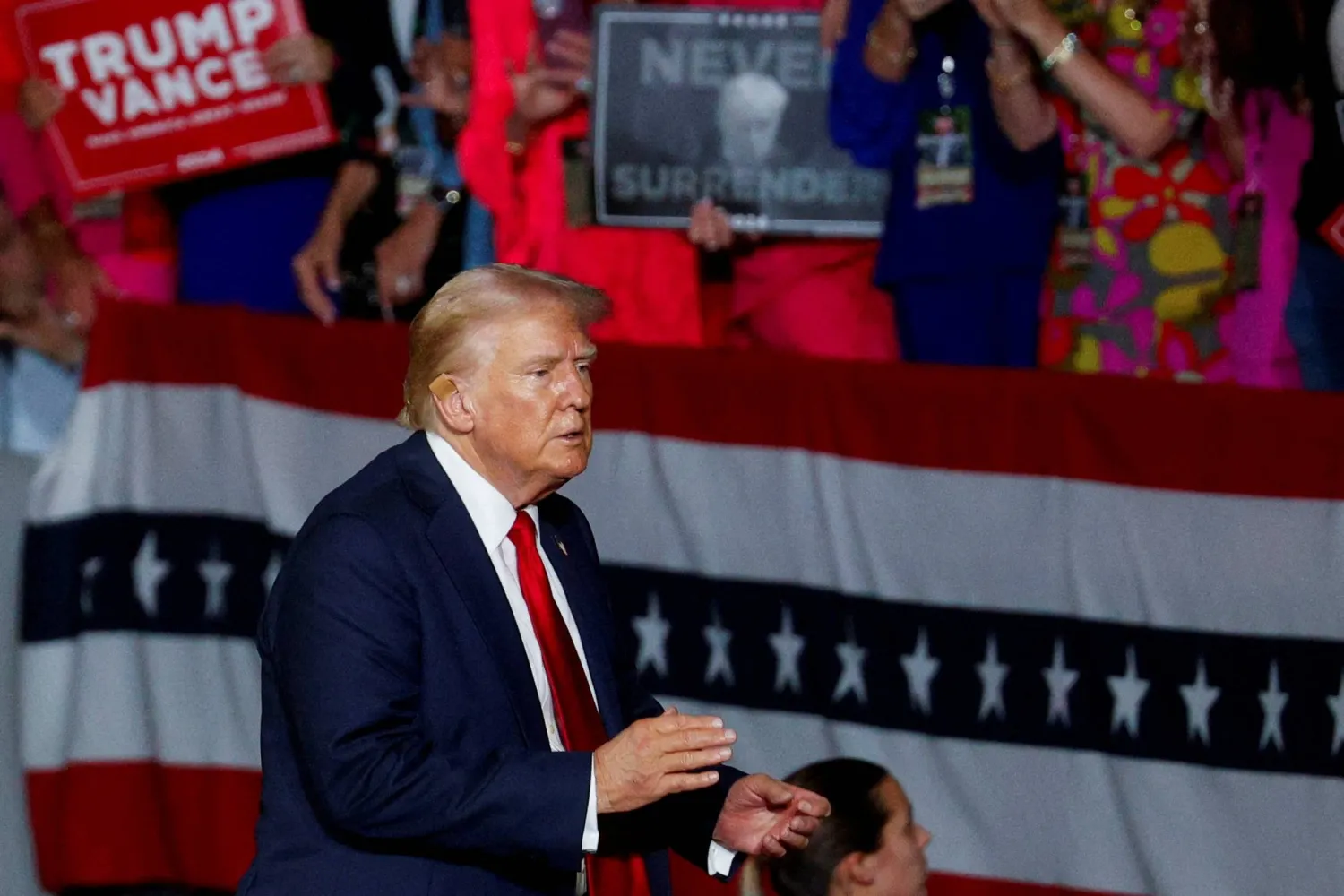Former President Donald Trump said he would sit for an interview with the FBI, as the bureau continues to investigate what motivated 20-year-old Thomas Crooks to try and assassinate Trump at a campaign rally in Pennsylvania.
"They're coming in on Thursday to see me," Trump, the Republican presidential candidate, said in an interview on Fox News that aired on Monday.
Police noticed the man who tried to assassinate Trump more than an hour before the July 13 shooting in Butler, Pennsylvania, and took a photo to share with other law enforcement officers, an FBI official said on Monday.
"The shooter was identified by law enforcement as a suspicious person," Kevin Rojek, the special agent in charge of the FBI's Pittsburgh field office, told reporters at a briefing on the agency's investigation into the assassination attempt.
He said a local officer took a photo of Crooks and sent it to other law enforcement officials at the scene of Trump's rally that day. Some 30 minutes later, Rojek said, SWAT team operators saw Crooks using a rangefinder and browsing news sites.
Crooks was seen carrying a backpack around 5:56 p.m., less than 20 minutes before the shooting took place, and at 6:08 p.m. he was caught on a police dashboard camera walking on the roof from where he ultimately fired the shots, Reuters quoted Rojek as saying.
Although the FBI is not the agency responsible for investigating any lapses in Trump's security, FBI personnel are putting together a timeline of events, he said.
FBI officials said they had yet to identify a motive for Crooks, who was shot dead by a Secret Service agent after opening fire.
But they said he had conducted online searches on prior mass shooting events, on improvised explosive devices and on the attempted assassination of the Slovakian prime minister in May.
Trump, who has been highly critical of the FBI, agreed to sit for a standard victim's interview, which "will be consistent with any victim interview we do," Rojek said. "We want to get his perspective."
Rojek confirmed Trump was struck by a bullet, whether "whole or fragmented into smaller pieces."
FBI officials have described Crooks as a loner who had no close friends or acquaintances, with his social circle limited primarily to immediate family members.
Using encrypted applications, Crooks made 25 firearm-related purchases and six chemical precursors used to make explosive devices, FBI officials told reporters.
Crooks' longtime interest in science and doing science experiments did not rouse any suspicion by his parents, whom the FBI said have been cooperative with the investigation.
Trump Agrees to Sit for Interview with FBI over Shooting

FILE PHOTO: Republican presidential nominee and former US President Donald Trump reacts on the day of his campaign in Charlotte, North Carolina, US July 24, 2024. REUTERS/Marco Bello/File Photo

Trump Agrees to Sit for Interview with FBI over Shooting

FILE PHOTO: Republican presidential nominee and former US President Donald Trump reacts on the day of his campaign in Charlotte, North Carolina, US July 24, 2024. REUTERS/Marco Bello/File Photo
لم تشترك بعد
انشئ حساباً خاصاً بك لتحصل على أخبار مخصصة لك ولتتمتع بخاصية حفظ المقالات وتتلقى نشراتنا البريدية المتنوعة







